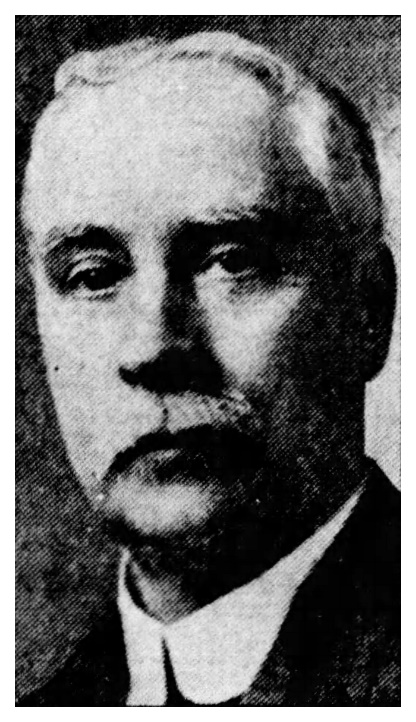
Elizabeth Emma Alden and James Tallmadge Elwell
JAMES TALLMADGE ELWELL was born July 2, 1855 in Minneapolis, Hennepin, Minnesota,456 and died August 10, 1933 in Minneapolis, Hennepin, Minnesota.456, 74 He is buried in Lakewood Cemetery, Minneapolis, Hennepin, Minnesota.456, 5290
He married ELIZABETH EMMA ALDEN on June 28, 1882 in Minneapolis, Hennepin, Minnesota,1710, 5291, 2024 daughter of MARIA ELIZABETH SHEDD and ALBERT MARTIN ALDEN. She was born October 27, 1860 in Wasioja, Dodge, Minnesota,1710 and died April 27, 1936 in Minneapolis, Hennepin, Minnesota.456, 74 She is buried in Lakewood Cemetery, Minneapolis, Hennepin, Minnesota.456, 5313
-
- John York Descendant Report (Ancestor of Elizabeth E. Alden)
- Randall Adams Descendant Report (Ancestor of Elizabeth E. Alden)
- Robert Stacy Descendant Report (Ancestor of Elizabeth E. Alden)
- William Brown Descendant Report (Ancestor of Elizabeth E. Alden)
- Thomas Cooper Descendant Report (Ancestor of Elizabeth E. Alden)
- Simon Bagnell Descendant Report (Ancestor of Elizabeth E. Alden)
- Samuel Cutter Descendant Report (Ancestor of Elizabeth E. Alden)
- John Locke Descendant Report (Ancestor of Elizabeth E. Alden)
- William Clarke Descendant Report (Ancestor of Elizabeth E. Alden)
- ? Haskell Descendant Report (Ancestor of Elizabeth E. Alden)
- John Smith Descendant Report (Ancestor of Elizabeth E. Alden)
- John Erpe Descendant Report (Ancestor of Elizabeth E. Alden)
- William Duyonson Descendant Report (Ancestor of Elizabeth E. Alden)
- John Newhall Descendant Report (Ancestor of Elizabeth E. Alden)
- Nicholas Potter Sr. Descendant Report (Ancestor of Elizabeth E. Alden)
- Thomas Green Descendant Report (Ancestor of Elizabeth E. Alden)
- William Graves Descendant Report (Ancestor of Elizabeth E. Alden)
- Thomas Burnap Descendant Report (Ancestor of Elizabeth E. Alden)
- Thomas Miller Descendant Report (Ancestor of Elizabeth E. Alden)
- Daniel Shed Descendant Report (Ancestor of Elizabeth E. Alden)
- Capt. Jerathmeel Bowers Descendant Report (Ancestor of Elizabeth E. Alden)
- Moses Baron Descendant Report (Ancestor of Elizabeth E. Alden)
- Walter Tybbott Descendant Report (Ancestor of Elizabeth E. Alden)
- Thomas Lambert Descendant Report (Ancestor of Elizabeth E. Alden)
- Robert Danbie Descendant Report (Ancestor of Elizabeth E. Alden)
- Richard of Kent Descendant Report (Ancestor of Elizabeth E. Alden)
Children of ELIZABETH EMMA ALDEN and JAMES TALLMADGE ELWELL:
- JAMES TALLMADGE ELWELL, b. August 31, 1883, Minnesota;1710 m. SOPHIE SJOBERG on July 19, 1909 in Minneapolis, Hennepin, Minnesota3976; d. November 2, 1944, Hennepin County, Minnesota.74
- MARGARET ALDEN ELWELL, b. October 6, 1884, Minneapolis, Hennepin, Minnesota;74 m. GEORGE ELMER COOK on November 10, 1909 in Minneapolis, Hennepin, Minnesota3976; d. February 27, 1974, Hennepin County, Minnesota.74
- EDWIN SHEDD ELWELL, b. March 3, 1886, Minnesota;456 m. (1) VEDA HOPE LOOMIS on February 6, 19155296, 2024, m. (2) FLORENCE ELWELL on December 30, 1960 in Broward County, Florida280, 9437; d. December 30, 1980.456, 6596
- ALDEN WORCESTER ELWELL, b. October 24, 1887, Minneapolis, Hennepin, Minnesota;1986 m. AGNES LIVONIA BEAN on June 19, 1912 in Minneapolis, Hennepin, Minnesota3976; d. April 30, 1927, Minneapolis, Hennepin, Minnesota.1986
- ELIZABETH ALDEN ELWELL, b. September 29, 1889, Minnesota;250 m. HOWARD NELSON WEIGEL on March 20, 1918 in Hennepin County, Minnesota2024; d. June 21, 1973, San Diego County, California.250
- RUTH ELWELL, b. December 3, 1890, Minnesota;9437 m. THEODORE ENGLISH FORD on August 5, 1926 in Minneapolis, Hennepin, Minnesota5315; d. June 6, 1973, Kansas City, Jackson, Missouri.5317
- MARY ISABELLE ELWELL, b. September 20, 1892, Minnesota;74 d. April 24, 1990, St. Louis County, Minnesota.74
- LAURENCE ROBERT ELWELL, b. January 2, 1895, Anoka County, Minnesota; m. VIRGINIA KAYE on May 28, 19215322; d. February 20, 1967, Pompano Beach, Broward, Florida.5298
- WATSON RICKARD ELWELL, b. June 1, 1896, Minnesota;99 m. (1) MARGARET SHERK on October 30, 1920 in Mankato, Blue Earth, Minnesota9431, m. (2) ESTELLE MALVINA MOOD on August 21, 1933 in Jackson County, Missouri940, m. (3) VERA C. MYERS on June 10, 1967 in Church By The Sea, Fort Lauderdale, Broward, Florida280, 6135; d. October 22, 1973, Broward County, Florida.99
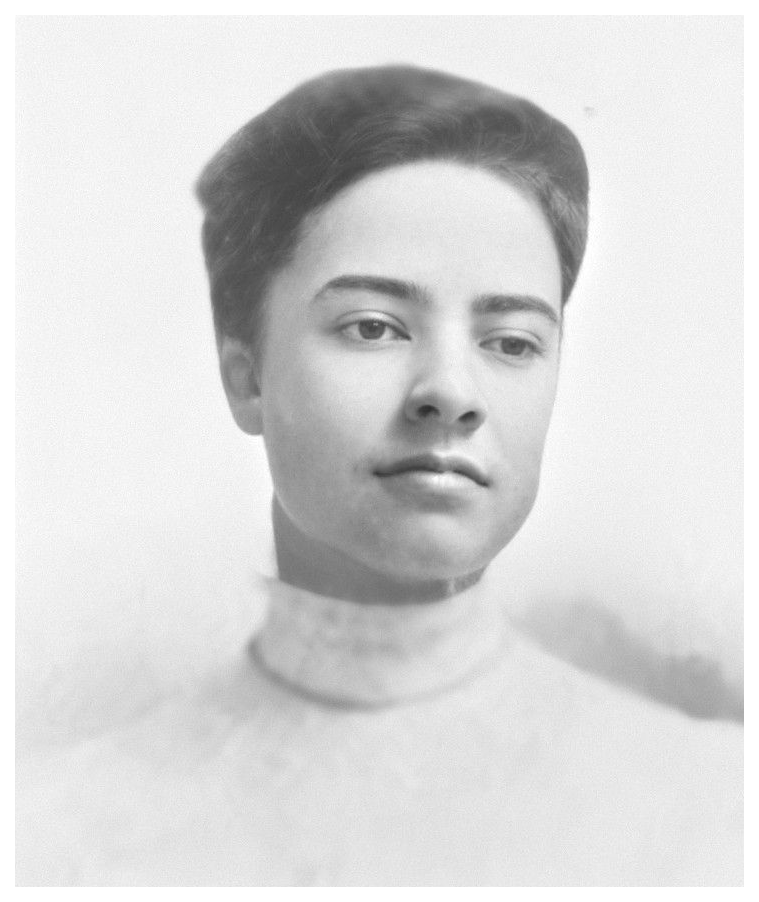
Margaret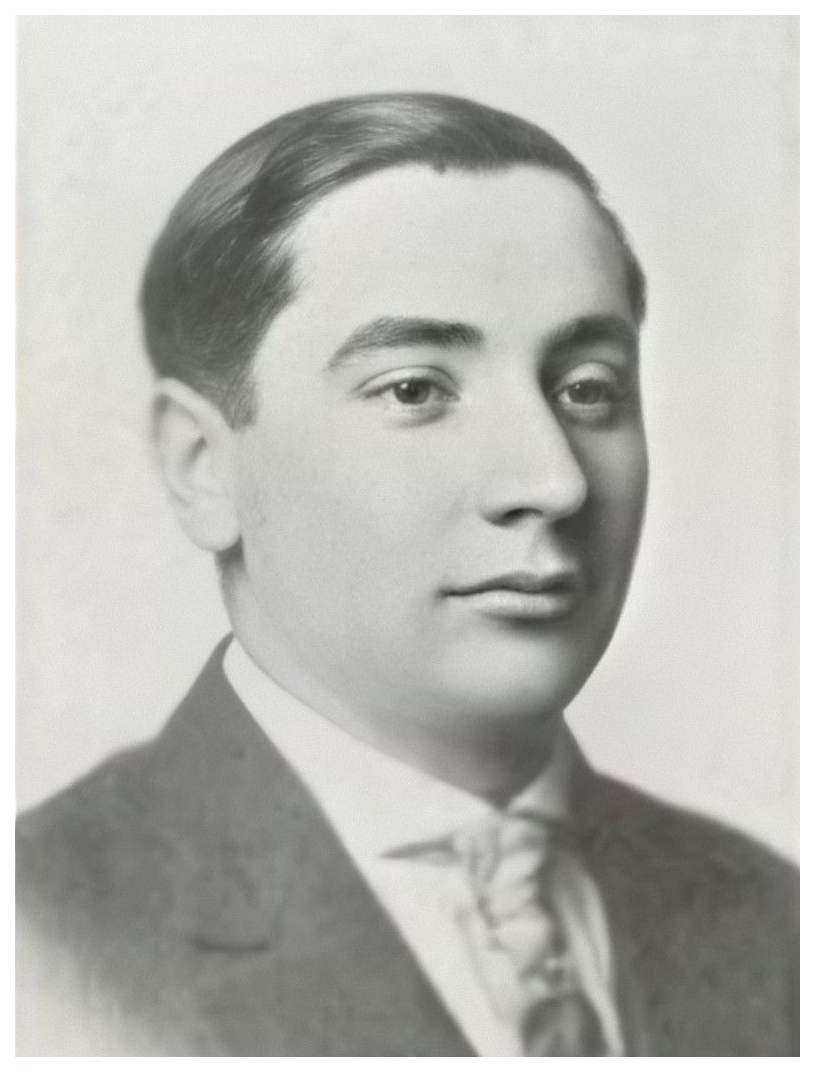
Edwin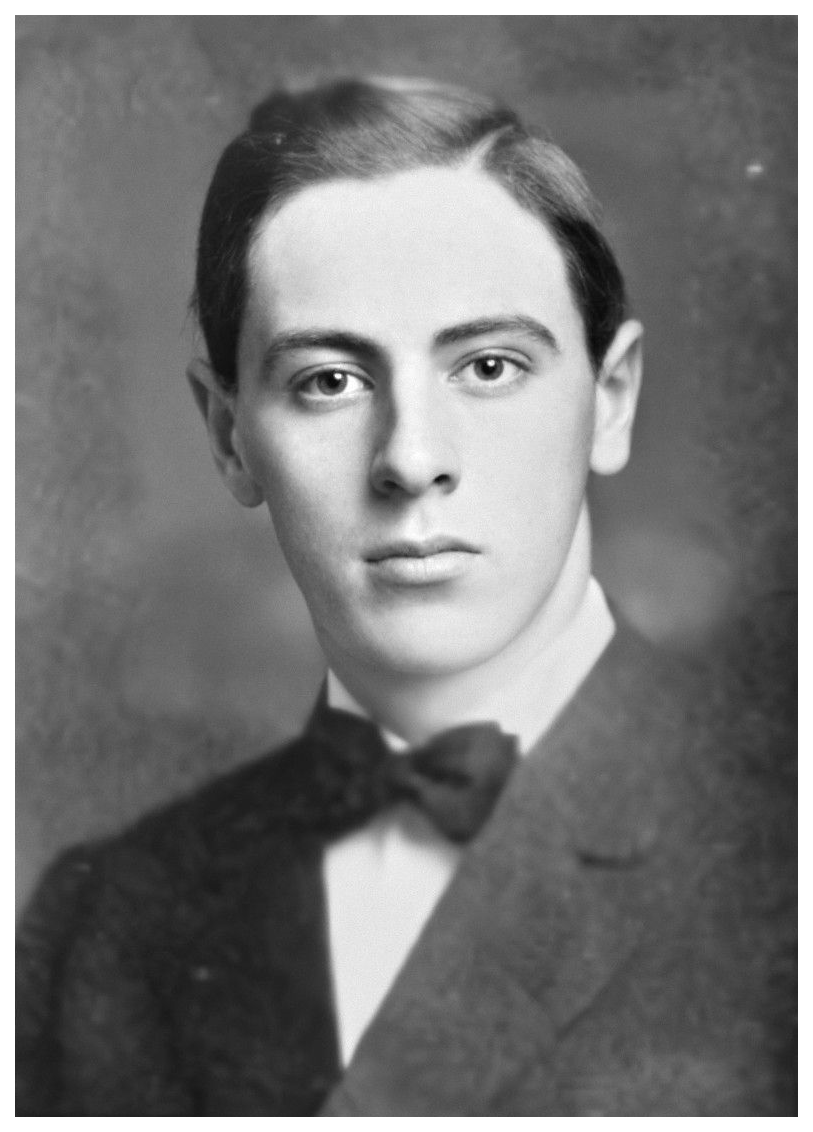
Alden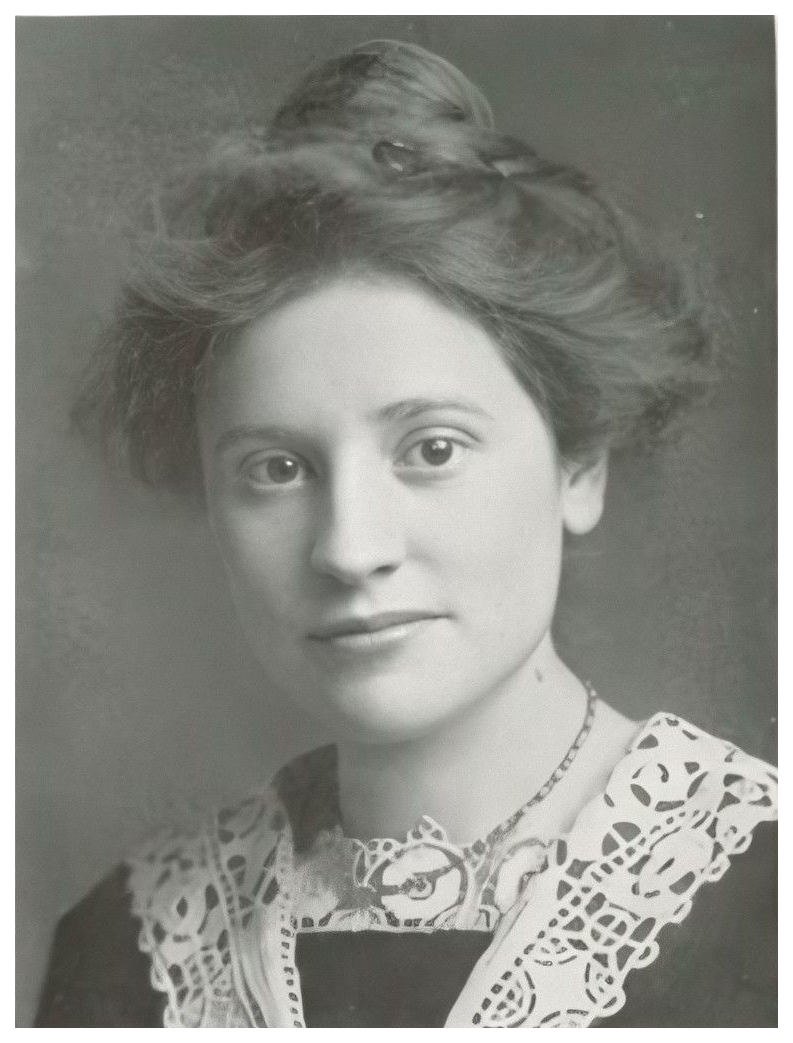
Elizabeth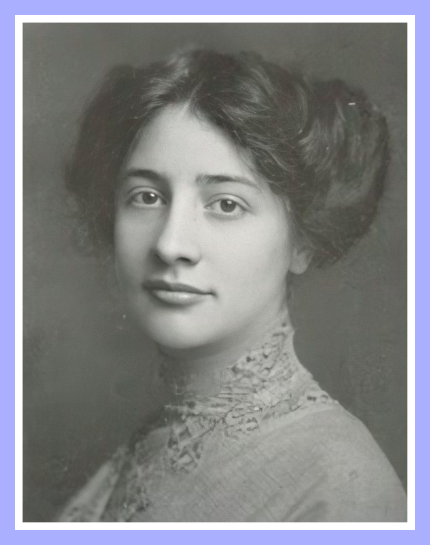
Ruth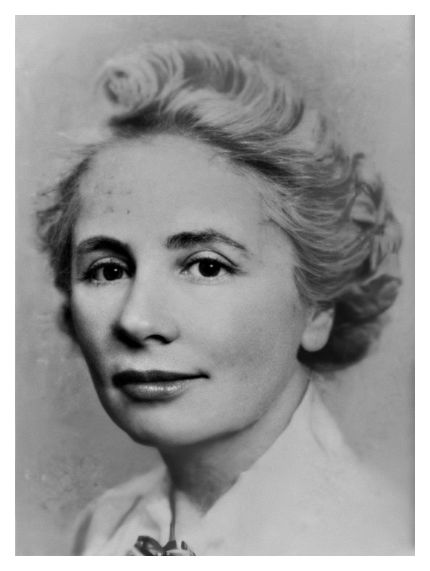
Mary


Personal Information
- Elizabeth Emma Alden was a member of the Como Congregational Church, Minneapolis, Hennepin, Minnesota. 5289
- James Tallmadge Elwell was a charter member of the Como Congregational Church, Minneapolis, Hennepin, Minnesota (1882). 5291


Education
- Elizabeth Emma Alden attended University of Minnesota, Minneapolis, Hennepin, Minnesota between 1878 and 1879.7737
- Member of Delta Gamma
- Activities: Art History Club


Work History
James T. Elwell


Marriage Announcements and News
Daily Minnesota Tribune, June 29, 18826408
James T. Elwell, the well-known manufacturer, and Miss Lizzie Alden, were married last evening at the residence of the bride's parents, 1227 Fifth street southeast, by Rev. J. L. Scudder. The presents were numerous and elegant.


Obituaries
Minneapolis Tribune, August 11, 19335291
James T. Elwell, 78, Model Assessment Act Sponsor, Dies
Former State Senator, Long Ill, Succumbs Quietly in Sleep.
Civic Leader Active in Real Estate Work, Manufacturing
James T. Elwell, 78, former state senator, realtor, manufacturer, and author of the Elwell law for the acquisition and assessment of property which has served as a model for the entire country, died Thursday.
His end came peacefully in his home at 945 Fourteenth avenue southeast, where he had lived for 32 years. In failing health since he suffered a stroke six years ago, he had been confined to his bed recently. He was napping, and he passed almost imperceptibly from sleep into death. Mrs. Elwell and a daughter, Miss Mary I. Elwell, were nearby when he died shortly after noon.
Members of the family in the city were notified and word was sent to a son, Edwin S. Elwell, president of the Northland Milk & Ice Cream Co., who was in northern Minnesota. Completion of funeral arrangements was awaiting his return.
Additions Bear His Name.
Although he had retired from public and private business six years ago and had not been active as a legislator for nearly a quarter of a century, Senator Elwell's influence was widely felt. Various laws, including the one bearing his name, have been operative in innumerable projects and have made possible some of the outstanding developments of the city, including the greater University of Minnesota campus and the enlargement of Minneapolis' park program.
Incorporated in the city are several additions with his name, while as a further monument to his memory are thousands of trees planed in southeast Minneapolis. Most of the active years of his life had been devoted to the interests of the city and the state.
Quits School for Business.
Senator Elwell was born July 2, 1855, in the town of St. Anthony, the son of Talmadge and Margaret (Miller) Elwell. He was the oldest of eight children. He received his early schooling in Cottage Grove, Minn., spending his boyhood in Washington county. The family moved into Morrison county for a short time, bur during and Indian uprising in 1862, they sought refuge at Fort Ripley. Later they came to Minneapolis. Young Elwell attended Carleton college, which then was a preparatory school, entering it in 1877.
He quit school to enter business, a business which his own ingenuity had devised. While still a youth, he invented a bed spring which was an improvement over the springs used in those rough and ready days. He set up a little manufacturing plant near Washington and Second avenue south, where he made bed springs. Then, not content merely with being a manufacturer, he went about the city selling his product.
The venture proved so promising that he branched out along more ambitious line. He built a plant on the east side, which eventually was to be the inspiration for two growing businesses, the Minneapolis Furniture Co., and the Minneapolis Bedding Co. It was in 1883 that he turned over his plant and business to his brother, George H. Elwell, and C. M. Way, who later developed the two other concerns.
Having quite manufacturing, Senator Elwell entered the business with which his name came to be most closely associated, that of real estate. He was not content with the mere buying and selling, but devoted himself to developments which left their impress on the city. He laid out the first Elwell's addition, improving it by the planting of many trees and by the erection of $5 houses.
Anoka County Project.
Then followed other additions, Elwell's Second, Elwell's Third and the Elwell and Higgins additions, each now a flourishing part of the city.
He extended his real estate activities when in 1886 he bought 52, 700 acres of land in Anoka county. Much of this land had been wast land, overrun with swamps, but he converted it into productive farms by establishing drainage systems. He constructed some 200 miles of ditches to drain and reclaim these acres.
He interested himself in roads also and was credited with building the first "air line" wagon road in that part of the state, connection two large stock farms in Anoka county. His activities as a road builder laid the foundation for part of the Elwell laws which were to come later.
During the development of farm and roads in Anoka county, Senator Elwell moved there in 1892, locating on a farm.
In 1899 his legislative career began. In that year he was elected a state representative from Anoka county. As a member of the lower house he took an early interest in those legislative matters affecting roads, land and other real estate developments. Out of this interest grew the measure bearing his name. One of the first of these which was a law under which the costs of road building were to be met through assessment of one-third of the cost against affected property, one-third against and state and one-third against the county.
In 1901, Senator Elwell left the farm in Anoka county, returning to Minneapolis. In that year he built the home at 945 Fourteenth avenue southeast, in which he had lived since. In 1907, he was elected to the state senate from the twenty-ninth district, continuing in the upper house the work he had begun in the lower.
It was while he was in the state senate that the project for the enlargement of the University of Minnesota campus came up. Senator Elwell became an ardent supporter. He was not content merely to be a passive partisan, but he enlisted the support of others. It proved a stubborn fight, but he would not be discouraged.
Members of his family recalled that at one time a delegation of professors came to him and begged him to give up the idea. They told him that the project was doomed, that the legislature would not sanction it, and that he might was well give up. But he wouldn't. Instead, he fought the harder. And, largely as a result of his efforts, the greater campus became a reality.
Senator Elwell also interested himself in the development of the upper Mississippi. In fact it was after his return from a visit to St. Louis where the development was discussed that he suffered the stroke six years ago. His activities on behalf of that enterprise had made a heavy drain on his strength.
Senator Elwell took an active interest in the subject of temperance. He was a member of a senate committee actively interested in that subject, and he did what he could to discourage excesses.
Good roads received his sponsorship through individual efforts and legislative activities.
Among residents of southeast Minneapolis, his zeal for planting trees has been acknowledge. He found much of that section swampy or treeless, and he set out many elms. These trees now have grown to impressive size.
Senator Elwell was married June 28, 1882, in Minneapolis to Miss Lizzie A. Alden. Those surviving him are Mrs. Elwell; four sons, James T. Elwell, Jr., Edwin S. Elwell, Laurance R. Elwell, of Minneapolis, and Watson R. Elwell of Glendale, Calif.; four daughters, Mrs. George E. Cook, Mrs. Howard N. Weigel, of Minneapolis, Mrs. Theodore E. Ford of Kansas City, and Miss Mary I. Elwell of Minneapolis; a brother, the Rev. Edward T. Elwell of Seattle, Wash.; two sisters, Mrs. T. M. Spaulding of Pasadena, Calif., and Mrs. W. D. Frost of Madison, Wis.; 26 grandchildren and one great grandchild.
Senator Elwell was a charter member of the Como Congregational church, and he was the first president of the St. Anthony Commercial club. He also was a charter member of the old Commercial club and later was a member of the Minneapolis Athletic club into which it merged. He belonged also to the Commonwealth club and the Six O'clock club. He was a member of the city planning commission and in 1925 was a candidate for mayor.
Senator Elwell's death Thursday revived interest in the measure bearing his name.
The Elwell law, otherwise known as chapter 185, general laws of Minnesota for 1911, grew out of a demand for legislation to expedite and lessen the cost of public improvements at a period when the city was growing rapidly and existing procedure for carrying out improvements was too cumbersome and costly.
Prior to passage of the Elwell law the city council had authority under a charter provision to order street improvements and to levy assessments against abutting property only and property owners were allowed not more than five years in which to pay these assessments.
Improvements under consideration at the time were considered of benefit to property owners other than those merely abutting the proposed improvements, and to assess merely abutting owners would have placed too great a tax burden on them, so Senator Elwell conceived the idea of legislation which would permit the creation of assessment districts to include all owners benefited by any project, and also to allow assessments to be paid in annual installments over periods of five, 10 or 20 years.
The law which he drafted also made provision for a system of appraisal of properties as a basis for the fixing of assessments, something that had not existed prior to passage of the act in 1911.
The Elwell law allow the city council and the board of park commissioners to operate under its provisions, and improvements which may be financed under the law are paving, grading, street openings and widenings, curb, gutter and sidewalk, sewers, storm drains and in some instances watermains have been included as parts of some of the so-called Elwell projects. The act also permits acquisition of land, and has been used extensively by the park board in acquiring property for parks and playgrounds. The law gives the park board authority to finance necessary structures for parks and playgrounds and equipment for the same by the Elwell assessment method.
Some of the city's street lights, particularly in the loop, have been financed under the Elwell law, the city attorney's office having given the city council an opinion that the law could be applied for such installations, and in the recent paving of Hennepin avenue the cost of constructing conduits and placing cables for the traffic signal system was included in the Elwell assessment.
City officials said that Minneapolis is the only municipality in the state to finance its improvements under the Elwell law, although Duluth officials recently have made some inquiries indicating they plan to use the Elwell system there in carrying out some of their improvements. St. Paul does not use the Elwell law. Officials said cities in other states frequently operate under systems similar to the Elwell law, but they have no record of any municipality which is employing the full system provided by the act which Senator Elwell drafted and sponsored.

Minneapolis Tribune, August 15, 19335290
FUNERAL HELD FOR ELWELL
Dr. George P. Conger Pays Tribute to Late State Senator.
James T. Elwell, former state senator and widely known as the author of the Elwell law for the acquisition and assessment of property, was described as a man whose life was devoted to two principal objects, the public good and his family. This description came from an old neighbor, Dr. George P. Conger of the University of Minnesota's department of philosophy in officiating at funeral services held in Lakewood chapel late Monday.
"Who of us, I say, has ever known a man more unselfish in his devotion to the public good?" Dr. Conger said.
"For years he had been my neighbor. Time and again, in the years before his illness came on, I have been in his home in the early evening when he came in from his day downtown. He had been working as hard for the city as any man could work for himself."
"There was never any thought of gain, or recognition. Those of you who were with him in his long years of service in the legislature, his work for good roads, his efforts on behalf of the university, his generous support of Carleton college, his chairmanship of the city planning commission—you can bear witness to all these things.
Advanced Public Good.
"His delight was in the advancement of the public good. His was no mere lip-service, no conventional and grudging support of these causes. Literally, he gave himself to them. And we who think of him today will miss the deep significance of his life if we do not take increased devotion to the city and the state which he really loved.
"He is gone now; and we need more men like him in public office and in private station.
"Not that he worked without reward," Dr. Conger continued. "His rewards were those of the man of integrity. Says the First Psalm, 'And he shall be like a tree, planted by the rivers of water, that bringeth forth his fruit in his season; his leaf also shall not wither; and whatsoever he doeth shall prosper.' 'He shall be like a tree—on could almost add, like one of those trees which Mr. Elwell planted along the streets, and which today and for many years to come will be his leafy monument. Sturday he was, and steadfast, and his life was fruitful.
Devoted to Kindred.
"The thought of his intimate circle brings to mind the fact that this picture from the First Psalm, after all, is not quite the last word, nor is it the best word. The best word about him, surely is an intimate personal word—'Having loved his own which were in the world, he loved them until the end.' There is his love for his family and kindred; his interest in all their works and ways; his solicitude and anxiety on their behalf; the kindliness which went even beyond his own circle to friends and neighbors far and wide."
Not only relatives and close friends, but many officials and others who knew him during the long years of his public life attended the funeral services. The pallbearers were his four sons, James T. Elwell, Jr., Edwin S. Elwell, Laurance R. Elwell, and Watson R. Elwell, and two sons-in-law, George E. Cook and Howard N. Weigel.
Senator Elwell died last Thursday in his home at 945 Fourteenth avenue southeast.

Minneapolis Tribune, April 28, 19365289
MRS. JAMES T. ELWELL.
Mrs. James T. Elwell, 75, widow of State Senator Elwell, died Monday in her home, 945 Fourteenth avenue southeast. She was born near Spring Valley, Minn., in 1860, and had lived in Minneapolis 68 years. She was a member of the Como Avenue Congregational church, the Art History club and Delta Gamma sorority. She is survived by four daughters, Mrs. George E. Cook and Mrs. Howard N. Weigel, Minneapolis; Mrs. Theodore Ford, Kansas City, Mo., and Miss Mary, Dulth; four sons, James T., Forest Lake, Minn., Edwin S. , Minneapolis; Laurance, Anoka, and Watson, Glendale, Calif.; five sisters, Mrs. George S. Grimes, Mrs. W. W. Morse and Mrs. Ruth Aldrich, Minniapolis, Mrs. Dwight E. Russell, Orange, Conn., and Mrs. W. A. Wheeler, Washington, D. C., two brothers, Lyman S. Alden, Minneapolis, and W. A., Ely, Minn., 26 grandchildren and two great grandchildren. Funeral services have not been arranged.


Census Records



